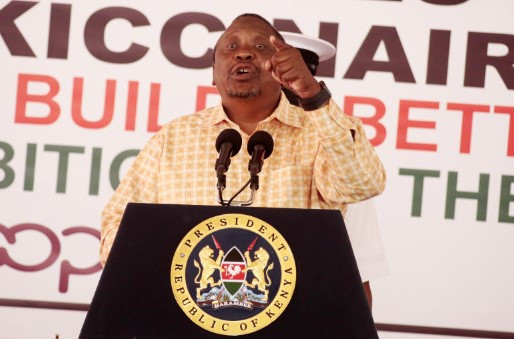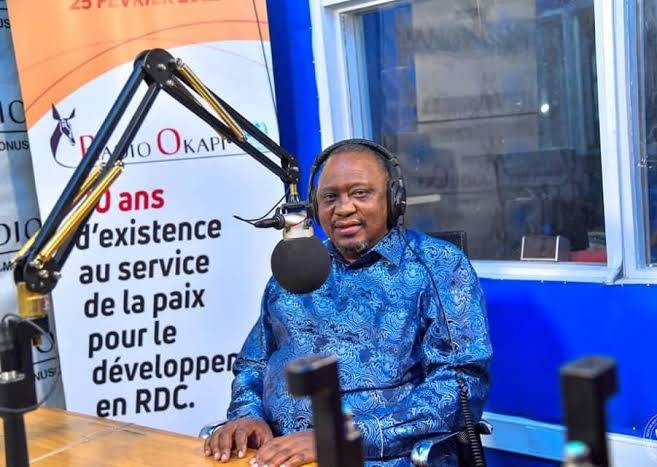The April 11 edition of The Standard Newspaper quoted former President Uhuru Kenyatta cautioning against the notion that only Raila Odinga can champion Kenyans’ issues. Kenyatta expressed bewilderment at the tendency to call for demonstrations, only to accuse him of disrupting businesses when the opposition leads them.
This statement comes days after the former head of state shamed what he termed as political traitors in the political arena.
Also, Political pundit Peter Kagwanja remarked on the irony of expecting Odinga to criticize a government supporting his AU Commission bid. He deemed it unfortunate for any Kenyan to hold such expectations.

Former President Uhuru Kenyatta gestures during a past speech
Kenyatta’s words come amid growing political tension and speculation about Odinga’s role in advocating for the public amidst government policies. This debate intensifies as Kenya prepares for the next general elections, with both leaders’ actions and statements closely scrutinized by the public and political observers.
Observers note that Kenyatta’s recent statements reflect broader concerns about the state of Kenyan politics and leadership. There is a growing sentiment that the political landscape is increasingly polarized, with leaders and parties often prioritizing their interests over the needs and aspirations of the people.
Former President Uhuru Kenyatta delivers speech during a past event
In this context, Kenyatta’s warning serves as a reminder of the importance of a diverse and inclusive political landscape, where multiple voices and perspectives are heard and respected. It also underscores the need for political leaders to prioritize the welfare and interests of the people above personal or partisan agendas.
As Kenya navigates through these challenging times, the role of leaders like Kenyatta and Odinga in shaping the country’s future will be closely watched and debated. The extent to which they can bridge divides, promote dialogue, and address the pressing issues facing the nation will ultimately determine their legacies in Kenya’s political history.



